From June 21 – 28, 2025
$750 is the per student fee. A deposit of $150 is required upon acceptance to hold an applicants position at the academy.
Once your application has been approved, an acceptance letter will be sent with the password to this websites Payment Page where you can make a deposit and conduct other financial transactions or request scholarship assistance.
When your deposit has been received you will be given a password to access our Library page, where you can review the schedule, class list, videos, explore informational links and use training aids that will give you a running start on academy topics.
We are a program of the Washington Council of Trout Unlimited. Local Fly Clubs and the Washington Council for Fly Fishers International provide additional financial support for this program. T.U. Chapters, local businesses and other generous donors all contributed to ensure this academy continues to provide fly fishing experiences, resource conservation values and aquatic knowledge. The academy is an all volunteer and a 501 c (3) non profit program and it totally depends on the generosity of the above mentioned, to help defray the $2,300 + per student cost of the academy. Our thanks to them and appreciation to you for considering our academy.
Label all your personal items.
Water Bottle
Bring one or two.
Life Vest Coast Guard approved Type 3 or 5
Wadersaders
Clothes
Sleeping Gear
Toilet Articles
Two students per staff member.
Registration is on June 21 from 9:00 – 11:00.
Pick-Up is on Saturday June 28 between 11:00 – 12:00.
The Academy has a written Emergency Plan that has been shared with the Trout Unlimited Volunteer Youth Program Coordinator, the camp facility manager, Mason County Sheriff , Co. Fire/Rescue and Emergency Medical Services. It documents preventive measures, preparedness, response and recovery procedures. The Emergency Plan’s components are available for review by any staff member, registered student or family member. The Emergency Plan is otherwise not distributed, for security reasons.
The Academy Staff (Directors, Academy Leader and Ghillies plus anyone who stays overnight ) must all pass a National Background Check.
The Academy Directors are all First Aid, CPR and Safe Driving Certified.
We conduct a pre-use facility check that covers Food handling, propane tank inspection, fire extinguisher, AED and Fire Alarm systems checks.
Students are only allowed on the dock, in a watercraft or in a river fishing when they are wearing a properly donned Personal Flotation Device.
Only wading up to a fly fishers knees is allowed.
A Rescue System is enacted whenever a student is in a watercraft on Panhandle Lake. It’s a multi layered system that includes Ghillies on the water with rescue gear as well as an on land observer who is in radio communications with the Ghillies.
All food is prepared by a state certified food handler.
Visit our Volunteer Page for an application form.
Yes ! The staff are all swimmers and we employ a Certified Life Guard for the required Swim Test.
The Co – Directors of the academy all agree that your time at camp should be equitably divided between instruction, learning activities and time to fish. Fishing time is scheduled every day, after the safety classes on day one. By the second day you should be able to cast well enough to fool fish with a fly.
No. Accommodations are dormitory style and we also require a same sex Ghillie in each dorm room.
A Qualitative Yes.
We can make minor changes to the menu. We’ll need to talk well before the academy in order to work out the details.
Yes.
They need to sign your application. They will also need to sign a waiver and release form found in the Library page under the button labeled ‘Parent Paperwork’. They need to sign and bring that form with them to the registration.
No.
If you take prescription medication or want to use over the counter medication you will need to self administer these items. Pursuant to Washington State law the staff can not administer medications to any student.
The Northwest Youth Conservation Fly Fishing Academy started in 2002.
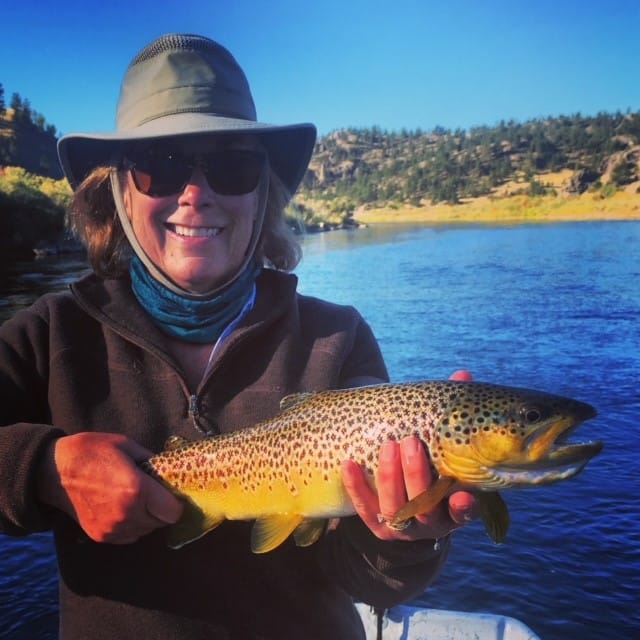
All my life I’ve enjoyed the outdoors, and learned a little about fishing from my Dad and Mom. I took my first pack trip at the age of 5 up to a mountain lake in Colorado. When we moved to Seattle everyone spent time on the water, boating, skiing or fishing. Quite a change from Wichita, Kansas! But I absolutely loved the mountains, water and fishing. Plus moving to Seattle gave me the opportunity to have my very own horse which I showed in Dressage and Three Day events
against international competition. My first job was exercising racehorses at Longacres. I’m a graduate of the University of Washington, and worked as a paralegal and office manager for a law firm in Seattle. When my husband and I had our daughter, I retired to raise her and began the wonderful life of being a parent, and “professional” volunteer. I have volunteered at Seattle Chamber Music Festival, Treehouse, the Guardian ad Litem program for King County,
helped create a chamber music camp for adults and children, been President of the Endolyne Garden Club, founded a piano performance group that has been going for 20 plus years and grown from its roots in Seattle to as far as Tuscon, Arizona. Since joining the Washington Fly Fishing Club, I have been it’s Ghillie, Foundation Treasurer, and now helping the NW Youth Conservation and Fly Fishing Academy. I am also a member of FFI and demonstrate fly tying at
their expos. I now split my time in Seattle with a home in Bozeman, so I can fish the wonderful rivers of Montana. My hobbies, other than fishing and fly tying, include Pickleball, reading, piano, knitting and last but not least, playing with my grandson.
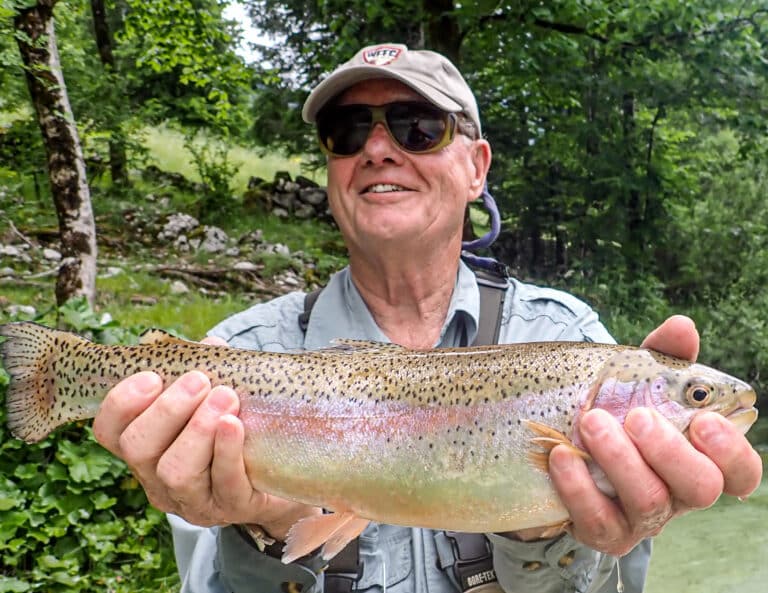
Jim learned how to tie flies and casting at the Long Beach Fly Fishing Club while in high school and started active fly fishing in 1966 while attending Chico State in northern California. His primary fly fishing has been in the salt in Rhode Island, the Keys, the Caribbean, and in the Puget Sound and in freshwater for trout in the Pacific Northwest and Internationally.
Jim worked in industry for over 40 years in North America, Europe and Asia developing and installing information systems to implement lean manufacturing and inventory management best practices.
Jims a member of the Washington Fly Fishing Club, Trout Unlimited and Fly Fishers International.
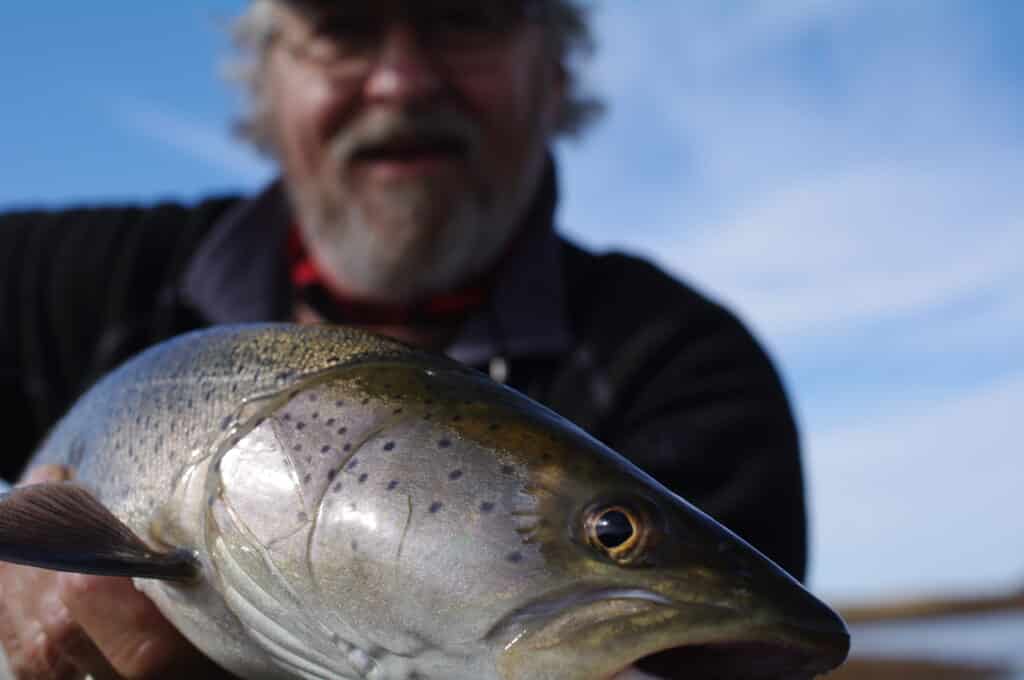
At twelve my first fly rod came with a manual that taught me how to scare fish and decorate adjacent trees with flies. I tried to fish with a fly for about six years and then finally got a few tips that allowed me to actually hook fish. Not until I was about forty did I start learning how to fish with a fly rod. Then my world changed for the better.
I grew up in New York and moved overseas with the family at fifteen. Graduated from Cal State Fresno, worked in Market Research and moved to Washington forty years ago. I was the Fire Chief of Chelan Co. Fire District #4 for 20 years and then founded a small Safety Consulting Business where I crafted Emergency Plans, Training Programs and Functional Exercises for hospitals, schools and industry.
On the fun side I’ve fly fished in numerous countries on this planet and just plain love fooling fish with a fly.
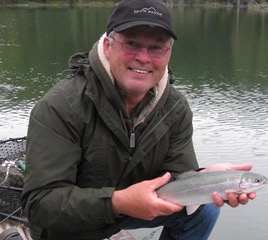
My passion for fly fishing began in high school when a teacher introduced myself and a few fellow classmates to the art of casting a fly. After numerous trips I was caught hook, line, and weighted Wooley Bugger. I soon after constructed my 1st fly rod (which I still have) and have since built around 20 rods of various weights. I enjoy all types of fishing from yellowfin tuna in Cabo to King salmon in Alaska. Trout fishing with a fly is by far my most relaxing and satisfying way to fish.
I spent 30 years teaching and coaching in the Seattle area and thoroughly enjoyed working with young people. Organizations I have been a part of include International Sportsman Club, Washington Fly Fishing Club, Trout Unlimited, Coastal Conservation Assoc., and the Olympic Fly Fishing Club.
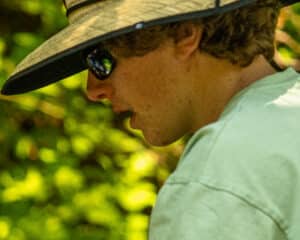
Wriley is 18 and has been fly fishing for 8 years. He attended the academy when he was 12 and had such a great time that he returned as a Ghillie in 2022. Fly fishing and tying is his way of escaping. He can really think and concentrate when he’s on the water or at his tying table. He also enjoy snowboarding, mt. biking and is a club diver.
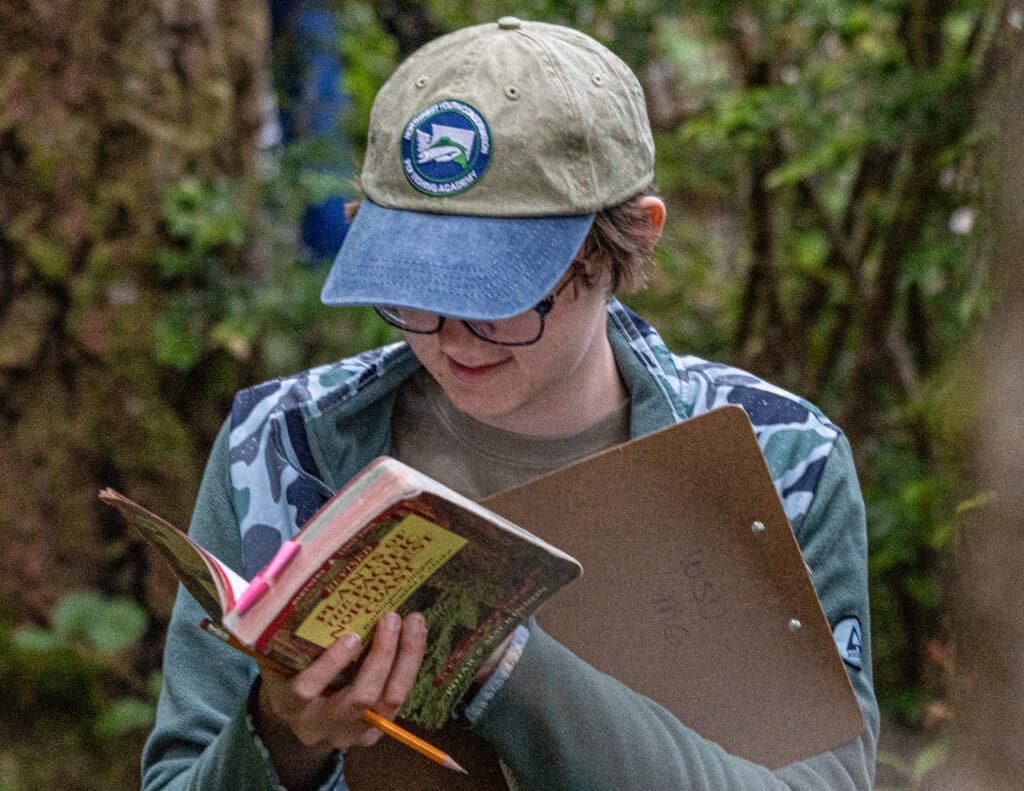
Cassidy is a fly fishing enthusiast and knows her fish and insects. During the summer she spends as much time as possible fly fishing. Her favorite fish to catch on the fly rod are trout, specifically cutthroats, but bass are also on her catch list. Cassidy especially likes fishing for trout in small creeks with a lightweight rod in the summer. She used to spin fish, but three years ago she picked up fly fishing and hasn’t stopped since. “I like fly fishing because of the detail, different techniques, and the many different fly patterns.

George is interested in fly fishing because he likes doing outdoor activities. He’s gone hiking, sailing and clam digging on numerous occasions. Caught Chum salmon on a fly and thinks fly fishing is a more engaging way to catch fish.
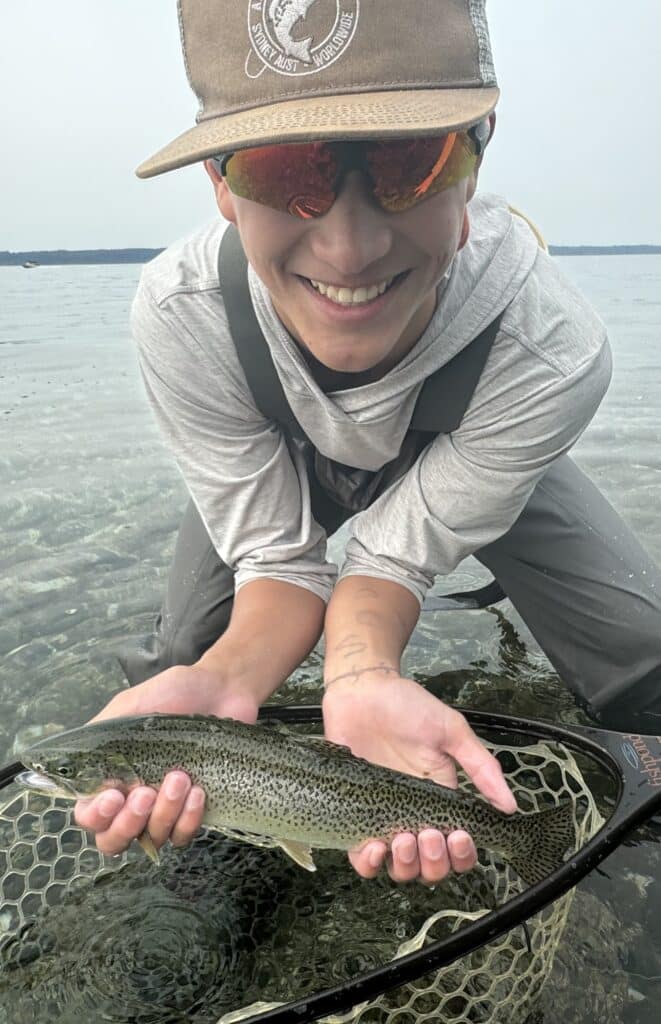
Knox is a young lover of fly fishing. He enjoys studying entomology and aquatic biology to further his understanding of the fish he chases. He started fly fishing for trout at the age of 9 and is doomed to spend the rest of his life doing it. Because of this obsession with fly fishing, Knox has learned as much as he can about the trout he loves to catch. He spends his free time tying trout flies (especially the Parachute Adams and Wolly Buggers) and finding out all there is to know about fly fishing and how to be the best he can be at it. Knox also enjoys rowing crew competitively and is a die-hard Arsenal fan.